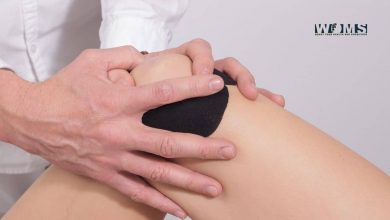Tips On How To Maintain A Healthy Heart

The heart is a vital organ that pumps blood and oxygen to the other significant organs of your body. If your heart health is not at the required level, you may be putting yourself at risk of various fatal diseases like heart attack, stroke, blockage in arteries and many more complex cardiac issues. Maintaining a lifestyle that augments your heart health is essential and easy. You can significantly improve your heart health by incorporating a few simple steps into your everyday routine.
So here are the essential steps to be taken to start tracking your heart health and improving it:
1. Knowing about your and your family’s medical history is important
To start with, visit your family doctor and get your vitals checked. Discuss the current condition of your heart, any risks and your family’s health history. Certain heart diseases can be genetic such as hypertension, congenital heart defects, coronary artery disease and more. So with a family history of such diseases, a person needs to stay more aware of his heart health. Make a plan for regular check-ups with your doctor.
2. Following a healthy diet plan is imperative
Try to include more and more healthy foods like vegetables and fruits into your diet. Whole grains, nuts, fish and dairy are preferred healthy choices while fatty dairy, red meat, canned food and sugary drinks need to be avoided. Opt for the roasted versions of your favorite fried snacks as they are healthier.
3. Staying active for the greater part of the day will keep you fit
It is a proven fact that exercise and physical activity keep chronic diseases at bay. Regular exercising, walking, jogging and similar activities can greatly enhance your quality of life. A fitness expert can guide you through the process of planning a daily exercise regime. Depending on your health, you can recommend a cardiovascular routine, muscle training, Pilates or high-intensity fitness training.
4. Mental health is as important as physical well-being
Stress has a direct effect on your vitals, especially blood pressure. Find ways to manage your stress levels. Get enough sleep, talk to friends, meditate and do whatever you like to lower your stress levels. Try to find the reasons that trigger anxiety in you and stay away from those.
5. Quitting your bad habits
Get rid of your negative behaviors before it’s too late. Bad habits like drinking and smoking can have a very adverse effect on your heart health. Take assistance from a coach, try medicines or get help from quit-smoking services; try different ways to control your habits to find which one works for you.
6. Learn how to check your vitals at home.
Various medical appliances are available these days to monitor your heart rate, blood pressure, blood sugar level, oxygen level and other vitals. These devices are very easy to use and can help you keep a regular check on your vitals.
How to know if you have high blood pressure
High blood pressure symptoms may differ from person to person. You may or may not have any symptoms at all which is why the disease is also called a ‘silent killer’. In case of a sudden increase in blood pressure, a person may experience drowsiness, nausea or vomiting, severe headache, visual issues, back pain, chest discomfort, anxiety and seizure. If experiencing such symptoms, the person may need immediate care. If your blood pressure is under control, you can have it tested twice a year. For people at greater risk, the physician may suggest you have the test taken more often.
Cholesterol and Blood Pressure
Cholesterol helps our body in digestion and in the proper functioning of certain hormones. It is categorized into good and bad cholesterol as the good cholesterol helps us to stay away from heart diseases while the latter may cause one. Being a contributor to heart disease, cholesterol levels need to be checked often through a blood test. You may visit a doctor for the blood test or do it yourself with a home testing kit. High cholesterol would mean going on medication and making certain urgent lifestyle changes. Undetected high blood pressure without treatment can cause damage to arteries, kidneys, heart, and other organs. So it is advised to measure blood pressure frequently and in general get your vitals checked regularly.




